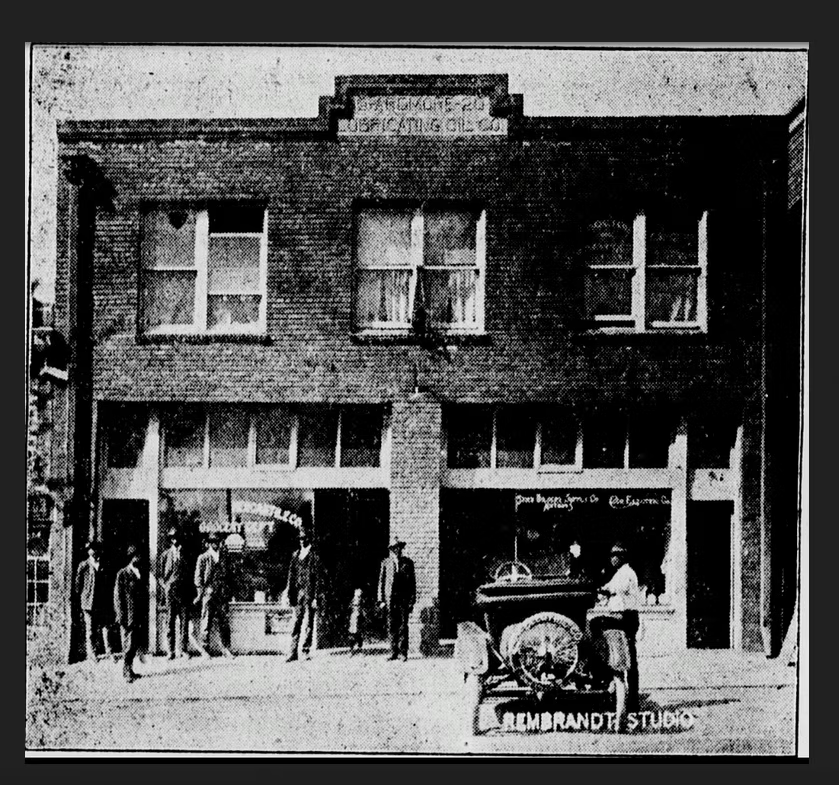Working as a roughneck or roustabout in the oil field is one of two main paths into the industry. The other is as a highly trained engineer.
But even within that supposed meritocracy – one ostensibly defined by grit and academic achievement – Black students and graduates contend that they are routinely neglected by the industry.
Nehikhuere, the well engineer at Shell, spent four years completing an engineering degree at the University of Texas at Austin, where he landed two coveted internships with XTO Energy and Marathon Oil, led a range of student organizations and graduated with a 3.54 GPA.
As one of only two Black students in his class in the engineering program at UT, he’d long known that he would be a minority in an industry overwhelmingly dominated by white men. Nearing graduation last year, however, one job application after another was rejected or disappeared into the ether. At career fairs, he felt recruiters seemed uninterested.
“I kept getting rejected, rejected, rejected. And I didn’t understand it at first,” Nehikhuere says.
As classmates started landing jobs while others kept hitting a wall, he says he began to notice that “a lot of these companies, they hire people who look like them, people who fit into that culture.”
He began to believe that “a lot of these fell back to my race.” Even if he wasn’t exactly being “singled out,” he says, he felt “discouraged by the lack of diversity in many of the companies” he interacted with.
“If I were white, I would’ve had an easier time ‘fitting in’ with a lot of different companies versus the experience that I had,” Nehikhuere says.
Other Black engineering graduates reached similar conclusions. One recent Black American graduate, who received a dual degree from Louisiana State University and Xavier University of Louisiana, landed competitive internships and published a research paper in a scientific journal, watched as white classmates whom she had tutored landed jobs in the industry while her job applications seemingly languished. She eventually gave up the search entirely, instead accepting what was initially a lower-paying position as a chemical engineer.
“They have a certain profile,” she says of the recruiters she met. “It seems like they’re looking for a certain kind of person: They have the high GPA, they have all these clubs, they have lighter skin. They just, I guess, don’t look like me.”
Oil and gas firms do tend to focus much of their recruiting efforts on schools such as Stanford, Rice, the University of Texas, Texas A&M and the Colorado School of Mines, scholars, professors and recruiters say. They are undoubtedly top-flight universities, boasting prestigious engineering programs that regularly stand at the top of the U.S. News & World Report rankings. But – as in Nehikuere’s experience at UT – those engineering programs are also overwhelmingly white.
“I completely understand the business rationale that we need a pool to draw from, but there are [other] pools that exist,” Wallace, the former recruiter for Shell, says. “The question is what are you doing with those existing pools?”
Those pools can be found in the engineering programs at historically black colleges or universities, he contends, from institutions such as Howard University in the nation’s capital, to others in the heart of oil country: Prairie View A&M University or Texas Southern University outside Houston, or Xavier in its dual-degree program with Louisiana State University. Students, graduates, professors and alumni, however, say they routinely feel all but ignored.
“It amazes me how people go, ‘We’ve never heard of you,’ even when I think, two or three years ago, The New York Times wrote about us,” Xavier President Reynold Verret says. “We send more Black students to graduate programs in the sciences than any other school in the country.”
The lack of attention from oil and gas companies – whether intentional or not – is the result, Verret says, of “the same presuppositions that underlie American prejudice for the last 100 years, the issue that we find in educating STEM students in general: the expectation that those students aren’t ready.”
It is true that HBCUs such as Xavier and Prairie View have had to implement summer on-ramps and other support programs that help prepare high school graduates for the academic rigors and freedoms of college. As many as a quarter of Xavier’s incoming freshmen each year, for example, arrive in need of intensive remedial help for reading or math.
“We meet them there and address those deficiencies,” Verret says. “Our experience tells us that they have talent and ability, but they maybe never learned to read or write, never learned the mathematics required to take that advanced mathematics class.”
By the time students graduate, though, they’ve completed a full course load aimed at preparing them for a job in the oil and gas workforce. Many have already gained work experience in the industry: Xavier, in particular, emphasizes the importance of internships so students can both begin to build their networks and burnish their resumes.
All the while, many of those same students have had to overcome poverty, trauma and their own experiences with discrimination. The oil and gas firms doing the hiring, though, have historically undervalued qualities like drive and self-determination that can come from such experience, Wallace says.
“Dynamics like, ‘This person worked their way through school,’ or, ‘That person was the first to go to college,’ those are not necessarily looked at as attributes that speak to future success,” Wallace says. “That’s where you get into – with some companies – a real hypocrisy: They indicate that they want to bring on a diverse workforce, but at the same time, there are certain perceptions, certain stereotypes, an inclination to look at things like the professors in the curriculum or the prestige of a certain school versus the actual students themselves.”


